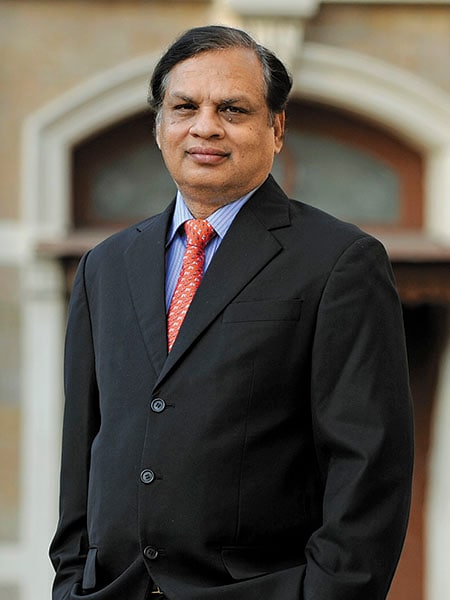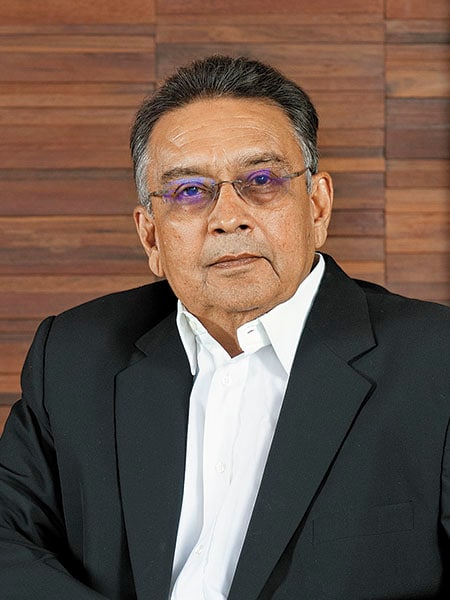India Rich List 2016: The tycoons who dropped out
Industry woes and market volatility played a part in these 13 tycoons not making the cut in 2016


Habil Khorakiwala
Wockhardt Ltd
No. 59 in 2015
Habil Khorakiwala, 74, chairs the Mumbai-based pharma major that has been battling headwinds ever since the US Food and Drug Administration (USFDA) issued an import alert against its drug manufacturing facility in Chikalthana, Maharashtra, in 2013. This implies that drugs made at this facility can’t enter the US, the largest market for generic drugs in the world. (The alert had not been lifted till the time of going to press.) The US drug regulator has also made some adverse observations against the company’s manufacturing units in Waluj, Maharashtra, and issued another import alert against a unit in Ankleshwar, Gujarat, where Wockhardt makes active pharma ingredients. Its share price has tanked by around 35 percent over the last one year compared to a 10.5 percent increase in the S&P BSE Sensex. While the company’s revenues have remained stable year-on-year in 2015-16 at Rs 4,558 crore, net profit declined by 19.5 percent in the same period.
 Venugopal Dhoot
Venugopal Dhoot
Videocon Industries Ltd
No. 61 in 2015
A slowdown in the consumer durables sector and declining returns from the oil and gas business, in line with the fall in global crude prices, have taken a toll on Videocon, and on the fortunes of its chief, Venugopal Dhoot, 65. The company is reeling under a debt burden of around Rs 43,000 crore. In June 2016, Credit Analysis and Research (CARE) Ltd cut its ratings on the company’s bank loans. Videocon, which also has a telecommunications venture, sold the spectrum it held to Bharti Airtel in March 2016 for Rs 4,428 crore. According to recent reports, the company is planning to monetise some of its international oil and gas assets to repay debt. Over the last one year, Videocon’s share price has declined by 24.5 percent.
Shishir Bajaj
Bajaj Group
No. 85 in 2015
Following a separation of business interests among members of the Bajaj family, Shishir Bajaj, 68, and his son Kushagra Nayan Bajaj control the interests in sugar production, power transmission, FMCG and infrastructure. The flagship company is Bajaj Hindusthan Sugar Ltd, Asia’s largest and the world’s fourth largest sugar producer. Owing to the challenges in the Indian sugar industry, including low price realisation and high sugarcane dues to farmers, the company has been reeling under losses. It even had to approach bankers to restructure its debt and temporarily shut down operations at some of its units. However, Bajaj Hindusthan was successful in narrowing its losses in 2015-16 to Rs 206.59 crore, from Rs 1,192.45 crore in the preceding fiscal. Prospects for the Indian sugar industry have been looking up recently as prices have firmed up due to a fall in production, improvement in exports, and higher proportion of ethanol (a byproduct of sugar production) blending with fuel. The group’s other big business is consumer products, which has also seen muted volume growth due to a general slowdown in the sector.
Sachin Bansal and Binny Bansal
Flipkart
Both No. 86 in 2015
Sachin Bansal, 35, and Binny Bansal, 33, have been the poster boys of the Indian ecommerce growth story. The friends—they aren’t related to each other—worked for Amazon before pooling in their life’s savings to start Flipkart in 2007 as an online seller of books. The venture has since metamorphosed into India’s largest ecommerce company, selling everything from electronics to footwear and apparel. To strengthen its foothold in the online apparel retailing business, Flipkart even acquired Myntra in 2014. But intense competition in the ecommerce space, with Amazon investing heavily in India to corner market share and Snapdeal trying to retain its foothold, has taken a toll on Flipkart. That, along with profitability concerns, has led many existing investors to re-evaluate their holdings in the company. On the basis of the markdowns, the ecommerce venture’s current valuation is pegged to be around $10 billion, down from $15 billon at its peak.  Chirayu Amin
Chirayu Amin
Alembic Group
No. 93 in 2015
Chirayu Amin, 69, is the patriarch of the Vadodara-based Alembic Group, whose main business interests include pharmaceuticals and real estate. Alembic Pharmaceuticals, one of the oldest pharma companies in India, has been making rapid strides to grow its generic drugs business in the US over the last few years and has a sizeable portfolio of drugs in India as well. Over the last four years till FY16, Alembic Pharma’s revenues have grown at a compound annual growth rate (CAGR) of 21 percent to Rs 3,145 crore and net profit has grown at 53 percent to Rs 719 crore. But sectoral challenges have seen the pricing power of drug-makers in India come under pressure and have resulted in relatively tepid growth for Alembic Pharmaceuticals in the domestic sector. Over the last year till September 30, the company’s share price has seen considerable volatility, fluctuating between a high of Rs 737 per share, to as low as Rs 527, before rising again to around Rs 650. The group’s other listed entity, Alembic Ltd, which houses the real estate business, has also seen similar fluctuations in its stock price.
Images: Habil Khorakiwala and Venugopal Dhoot: Vikas Khot Chirayu Amin: Mexy Xavier
First Published: Nov 02, 2016, 06:40
Subscribe Now